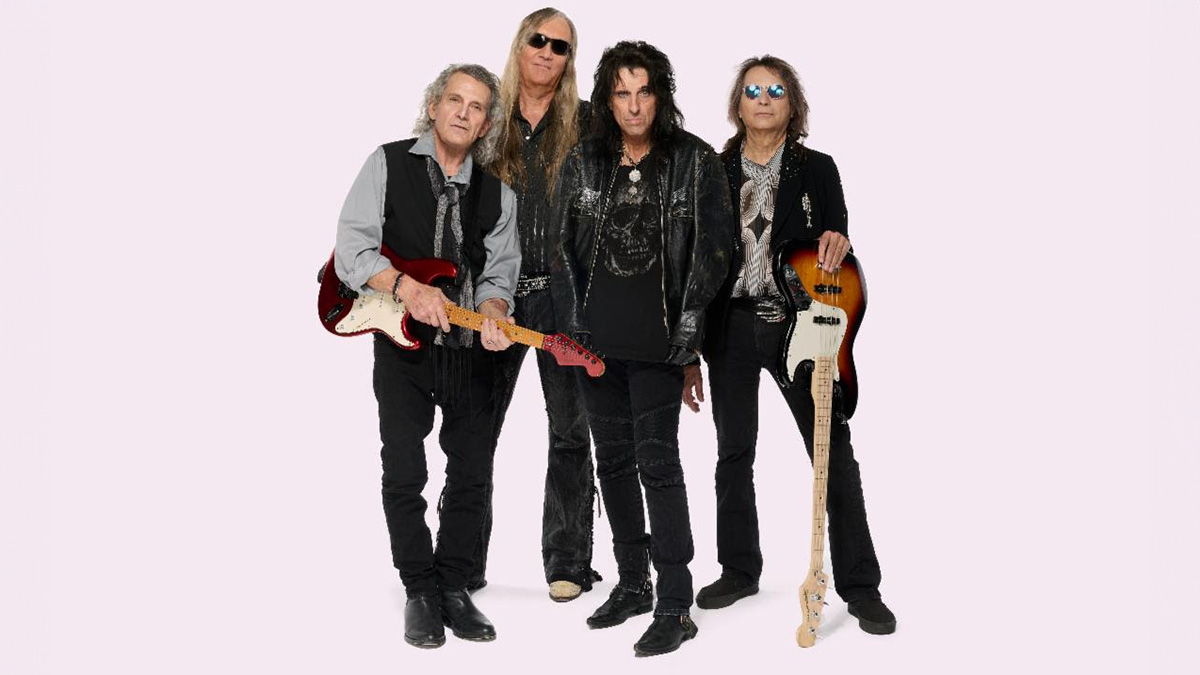John Myung: “Every song, every album, every musician is a potential teacher. It’s just a matter of whether you’re open enough to see it that way“
The Dream Theater bassist shares advice, gear tips and explains the joy of six

Progressive metallers Dream Theater, now 31 years into their career, have recently released their ninth live album – an impressive statistic, given how hard it is these days to get a single studio release out, let alone a live one.
Distant Memories – Live In London was recorded last year at the quintet’s sold-out live show at the Apollo Theater in London, UK, when the band were touring their latest studio album Distance Over Time and celebrating the 20th anniversary of their concept album Metropolis Part 2 – Scenes From A Memory.
The live sound is punchy and clear on the album, a fact that bassist John Myung attributes to taking the right staff along with them.
Gear is really important, because ultimately, it’s the tool that you use... Having the best tools really does make a great difference, whether you’re a musician or a carpenter or whatever.
“Our main engineer, James ‘Jimmy T’ Meslin, did a great job of overseeing everything,” he says. “He came out with us as a monitoring engineer, so to have him there every step of the way, from the way everything sounded on stage to the way it was actually mixed, was an amazing asset.
“Monitoring engineers work with musicians in a very close relationship, and there’s a certain dynamic there where you can get to know each other, which really translates well to the actual recording aspect.”
He adds: “There’s a trust there, because a lot of the time the front-of-house engineer at a show may be someone that you don’t have a whole lot of history with.
“They don’t have the time to do the homework and listen to your material, whereas a monitoring engineer who has toured with a band for 18 months, as Jimmy did, has done the homework that is necessary to really know the material.
Get The Pick Newsletter
All the latest guitar news, interviews, lessons, reviews, deals and more, direct to your inbox!
“You can reference the tiniest sections and he’ll be right with you, because he knows exactly what you’re talking about.”
Do Myung’s bass parts differ live from the original studio tracks, we ask? “It’s definitely not as perfect,” he agrees. “There are certain elements of a live recording that are really cool, that you can’t get in the studio, just because of the overall live interpretation.
“The bass parts that you hear on an album come from me sitting comfortably in a chair, tracking with headphones on, but on a live record they’re completely different because it’s feeding off the overall performance of the band. Those extra nuances get captured on a live album, and they’re what make it special. There’s a breadth, and more space.”
A keen user of Ernie Ball basses and Ashdown amplification, Myung has plenty of tips for us about gear – but first, he talks about the mental attitude required to do the job of holding down the low end.
Perseverance pays off
“This advice applies to whatever job you do, whether you’re an astronaut, or a surgeon, or a musician. The key element is persistence. You can have the greatest ideas, and the greatest intentions, but there are days when you may not put the time in – as well as other days when you’re all about putting the time in. Even that out, and focus on getting into a daily habit of putting in the time. I think it’s the most important thing.”
Never stop learning
“Everything is a possible teacher. Every song, every album, every musician – and any person or any body of work – is a potential teacher. It’s just a matter of whether or not you’re open enough to see it that way. I’m a firm believer that if a person has the time, they can learn anything.
“Learning isn’t an intangible, expensive place to be – it doesn’t cost anything to teach anything to anybody. It’s more or less just about having enough time to sit down and see what it is that you’re doing, and to do that in a persistent way. That’s the real challenge.”
Equip yourself correctly
“Gear is really important, because ultimately, it’s the tool that you use. There are tools that are helpful, and some that are not, and having the best tools really does make a great difference, whether you’re a musician or a carpenter or whatever.
”It all takes a bit of thought – the make and model of bass that you want to play, and the type of amps that you want to use, and how it all works for you as an individual.”
Don’t fear the B and the C
“For anyone who wants to play a six-string bass, it’s real easy. Consider the middle four strings as a four-string bass, and play it that way. You don’t have to use the first or sixth strings. That’s how I thought of it: it wasn’t like I didn’t have a four-string bass any more, because I still had it. It’s just that the extra range was there if you needed it. Once your imagination kicks in, then your creativity will find a way to use the extra strings.”
Don’t settle for ‘good enough’
“My signature Ernie Ball Bongo six-string bass was a really amazing thing to happen in my life; it’s a great tool to have available, not just for me but for whoever else has an interest.
“The six-string bass is continually evolving, and it’s definitely more tricky to build than a four-string because it’s a balancing act with the string spacing and getting the overall feel of it right. The bass I have now has been in development for over 10 years.
“It started in 2007, when I asked them to make me a six-string, and after living with that one for the first year, I started going back and forth with the development team, and we started working on custom basses. I would email them with my concerns after a show, and they incorporated my suggestions into the next model that I got a little while later. I would spend some time with it, and do a record with it, and send more feedback – so there was a lot of experimentation.”
- Dream Theater's Distant Memories – Live In London is out now via Inside Out.
Bass Player is the world’s most comprehensive, trusted and insightful bass publication for passionate bassists and active musicians of all ages. Whatever your ability, BP has the interviews, reviews and lessons that will make you a better bass player. We go behind the scenes with bass manufacturers, ask a stellar crew of bass players for their advice, and bring you insights into pretty much every style of bass playing that exists, from reggae to jazz to metal and beyond. The gear we review ranges from the affordable to the upmarket and we maximise the opportunity to evolve our playing with the best teachers on the planet.
“I knew the spirit of the Alice Cooper group was back – what we were making was very much an album that could’ve been in the '70s”: Original Alice Cooper lineup reunites after more than 50 years – and announces brand-new album
“Such a rare piece”: Dave Navarro has chosen the guitar he’s using to record his first post-Jane’s Addiction material – and it’s a historic build





![[from left] George Harrison with his Gretsch Country Gentleman, Norman Harris of Norman's Rare Guitars holds a gold-top Les Paul, John Fogerty with his legendary 1969 Rickenbacker](https://cdn.mos.cms.futurecdn.net/TuH3nuhn9etqjdn5sy4ntW.jpg)





